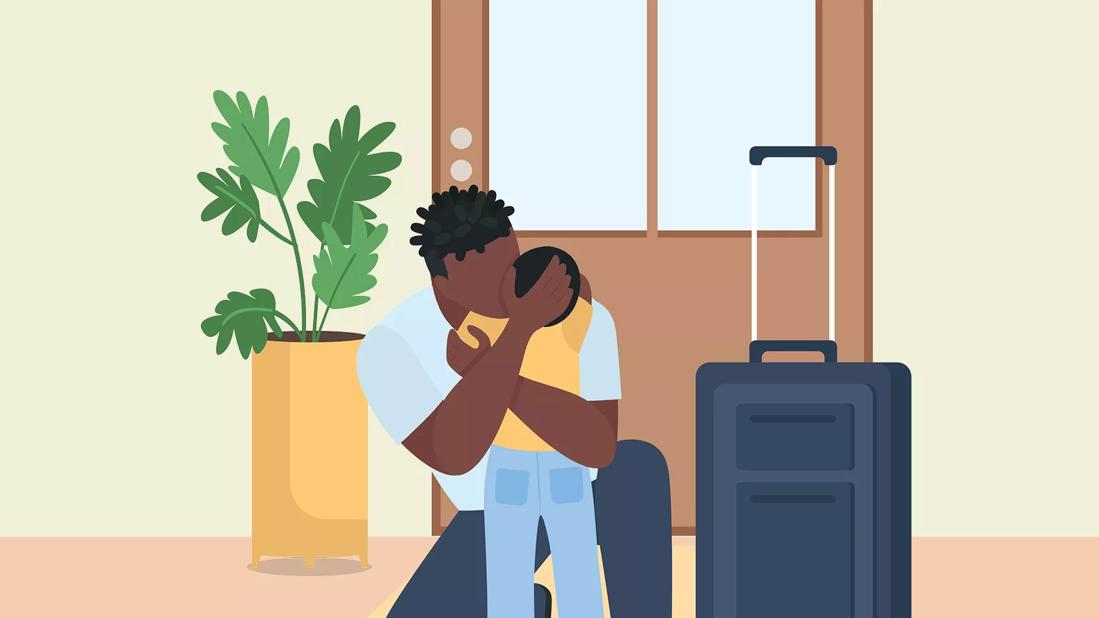Tips from a pediatrician to help your child adjust

Image content: This image is available to view online.
View image online (https://assets.clevelandclinic.org/transform/88f7f29a-c8bd-40c3-89de-9eb2991ba0c3/ChildrenofDivorce-1306474967-770x533-1_jpg)
An illustration of an adult and child hugging while a suitcase sits near the door
Divorce can end some unhappy, unhealthy unions, and in the end, can become the best solution for a struggling family. But if you’re a parent going through it, you’re probably thinking about more than just yourself. If you stay up at night wondering how your children are affected — you’re not alone. There are ways to make this familial transition a bit easier for everyone.
Advertisement
Cleveland Clinic is a non-profit academic medical center. Advertising on our site helps support our mission. We do not endorse non-Cleveland Clinic products or services. Policy
Pediatrician Heather Sever, DO, says that divorce and separation can impact children at any age. “When parents are going through difficult times, children perceive that, regardless of their age. So while kids may express their stresses in different ways at different ages, it’s important for parents to be as open and honest as possible, even with difficult situations,” she says.
To be able to guide your child through this major life event, you must first understand your child’s feelings and then, equip yourself with the right tools for coping. Dr. Sever shares tips, below.
For children, divorce may be a very traumatic and overwhelming experience. Some children blame themselves for the breakup of a marriage and experience feelings of guilt.
Others may act out, or academic performance may decline. When a child experiences conflict, it creates anxiety and cognitive dissonance in them, often causing them to align with one parent over another to ease their discomfort or turn to outside, unhealthy outlets to express their feelings.
Depending on the child’s age, they may experience confusion (common in younger children), anger (common in teenagers), worry and guilt. Each situation is unique.
Advertisement
“The good news for parents is that it is possible to reduce these psychological effects,” says Dr. Sever.
Here are ten things you can do to help your child navigate this difficult time.
If you are interested in considering professional help, talk with your child’s pediatrician about getting a referral to see a counselor. This will help ensure their social, emotional and spiritual well-being.
Advertisement

Sign up for our Health Essentials emails for expert guidance on nutrition, fitness, sleep, skin care and more.
Learn more about our editorial process.
Advertisement
A glass child is the sibling of someone with special needs — often seen as the easy one, but carrying invisible burdens
Appetite changes, social isolation, repetitive behaviors and more may indicate that your child is struggling
Golden children often deal with perfectionism, low self-esteem and strained relationships as adults
Think of this behavior as a role reversal between parent and child — when a child takes on responsibility that’s not developmentally appropriate for their age
Tantrums and meltdowns are normal, but you can help your child manage their bigger emotions
American teens are facing unprecedented rates of depression and suicide, but you can be there to support and help them
Unexplained injuries, mood changes and sudden isolation may be signs your child needs help
Be involved in your kid’s care, but be mindful of boundaries
Although it could be used as a moisturizer, this new trend is not recommended
Communicating clear limits helps protect your time, energy and emotional well-being
High cholesterol can be genetic, but testing and treatment can lower your heart disease risk